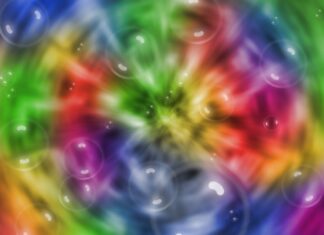Electrolyte water has gained popularity as a beverage that not only quenches thirst but also helps replenish essential minerals lost through sweating and physical activity. This type of water contains electrolytes, such as sodium, potassium, calcium, and magnesium, which play crucial roles in maintaining hydration and supporting various bodily functions. In this comprehensive guide, we will explore everything you need to know about electrolyte water, including its composition, benefits, uses, and potential considerations.
1. Composition of Electrolyte Water
Electrolyte water typically contains a combination of minerals, including sodium, potassium, calcium, and magnesium, dissolved in purified water. These minerals are essential electrolytes that help regulate fluid balance, nerve function, muscle contractions, and pH balance in the body. The concentration of electrolytes in electrolyte water may vary depending on the brand and intended use, with some formulations tailored for specific purposes, such as hydration during exercise or recovery from illness.
2. Importance of Electrolytes
Electrolytes are crucial for maintaining proper hydration and supporting overall health and well-being. Sodium and potassium, in particular, play key roles in regulating fluid balance and nerve function. Calcium is essential for bone health, muscle contractions, and blood clotting, while magnesium is involved in energy metabolism, muscle function, and nerve transmission. When the body loses electrolytes through sweating, urination, or other bodily processes, replenishing these minerals is essential to prevent dehydration and maintain optimal physiological function.
3. Benefits of Electrolyte Water
Drinking electrolyte water can offer several benefits, especially during periods of intense physical activity, high temperatures, or illness. Replenishing lost electrolytes helps prevent dehydration and maintain hydration levels, which is essential for supporting athletic performance, cognitive function, and overall well-being. Electrolyte water may also help alleviate symptoms of dehydration, such as fatigue, muscle cramps, dizziness, and headaches, by restoring electrolyte balance and promoting fluid retention.
4. Hydration During Exercise
Athletes and fitness enthusiasts often rely on electrolyte water to stay hydrated and maintain optimal performance during exercise. Sweating leads to the loss of electrolytes, particularly sodium and potassium, which can impair muscle function, decrease endurance, and increase the risk of dehydration and heat-related illnesses. Drinking electrolyte water before, during, and after exercise helps replace lost fluids and electrolytes, promoting better hydration, performance, and recovery.
5. Rehydration After Illness
Electrolyte water is also beneficial for rehydration after illness, particularly conditions that involve vomiting, diarrhea, or fever, which can lead to significant fluid and electrolyte losses. Replenishing lost electrolytes helps restore hydration levels, support immune function, and aid in recovery from illness. Electrolyte water may be recommended for individuals with gastrointestinal infections, food poisoning, or other acute illnesses to prevent dehydration and promote faster recovery.
6. Electrolyte Imbalance
While electrolytes are essential for health, imbalances in electrolyte levels can have adverse effects on the body. Hyponatremia, or low sodium levels, can occur with excessive water intake or prolonged sweating without adequate electrolyte replacement, leading to symptoms such as confusion, weakness, nausea, and seizures. Hyperkalemia, or high potassium levels, can result from kidney dysfunction or excessive intake of potassium-rich foods or supplements, potentially causing irregular heart rhythms and muscle weakness. Monitoring electrolyte levels and consuming electrolyte water in moderation is essential to prevent imbalances and maintain optimal health.
7. Choosing Electrolyte Water
When selecting electrolyte water, it’s essential to consider factors such as the mineral composition, flavor preferences, and intended use. Some electrolyte waters may contain added sugars, artificial flavors, or preservatives, so reading the label and choosing products with minimal additives is recommended. It’s also important to choose electrolyte water that provides a balanced blend of minerals to support hydration and electrolyte balance without excess sodium, potassium, or other electrolytes.
8. DIY Electrolyte Water
Alternatively, individuals can make their electrolyte water at home using simple ingredients such as water, salt, and citrus juice. A basic recipe for DIY electrolyte water involves mixing water with a pinch of salt and a squeeze of lemon or lime juice to provide sodium, potassium, and flavor. This homemade electrolyte solution can be customized to individual preferences and used to stay hydrated during exercise, illness, or hot weather.
9. Considerations and Precautions
While electrolyte water can be beneficial for hydration and replenishing lost minerals, it’s essential to use it as part of a balanced diet and lifestyle. Consuming excessive amounts of electrolyte water or relying solely on it for hydration may lead to electrolyte imbalances or excessive sodium intake, particularly in individuals with certain health conditions such as kidney disease or hypertension. It’s important to drink electrolyte water in moderation and consult with a healthcare professional if you have any concerns about your electrolyte levels or hydration status.
Electrolyte water has become increasingly popular for its role in hydration, particularly among athletes, individuals recovering from illness, and those in hot or humid environments. Its ability to replenish lost electrolytes and support optimal hydration makes it a convenient choice for maintaining fluid balance and supporting overall health and well-being. However, it’s essential to use electrolyte water as part of a balanced diet and lifestyle, alongside whole foods and other beverages, to ensure adequate nutrient intake and prevent excessive sodium or potassium intake. Incorporating electrolyte water into your daily routine can help you stay hydrated, perform at your best, and feel your best, whether you’re hitting the gym, recovering from a bout of illness, or simply enjoying outdoor activities in the sun.
Electrolyte water offers a convenient and effective way to stay hydrated and replenish essential minerals lost through sweating, physical activity, or illness. With its balanced blend of sodium, potassium, calcium, and magnesium, electrolyte water supports optimal hydration, athletic performance, and overall well-being. Whether you’re an athlete looking to maximize your performance, recovering from illness, or simply seeking a refreshing beverage, electrolyte water can be a valuable addition to your hydration routine. However, it’s important to use electrolyte water in moderation and alongside a balanced diet and lifestyle to prevent electrolyte imbalances and ensure optimal health. By incorporating electrolyte water into your daily routine, you can stay hydrated, energized, and ready to tackle whatever challenges come your way.
10. Incorporating Electrolyte Water Into Your Routine
Incorporating electrolyte water into your daily routine can help support hydration, athletic performance, and overall well-being. Whether you’re an athlete looking to optimize your performance, recovering from illness, or simply seeking a refreshing beverage, electrolyte water can be a convenient and effective option for staying hydrated and replenishing essential minerals. Experiment with different brands, flavors, and formulations to find the electrolyte water that best suits your needs and preferences. Remember to drink electrolyte water in moderation and alongside a balanced diet and lifestyle for optimal health and hydration.






















